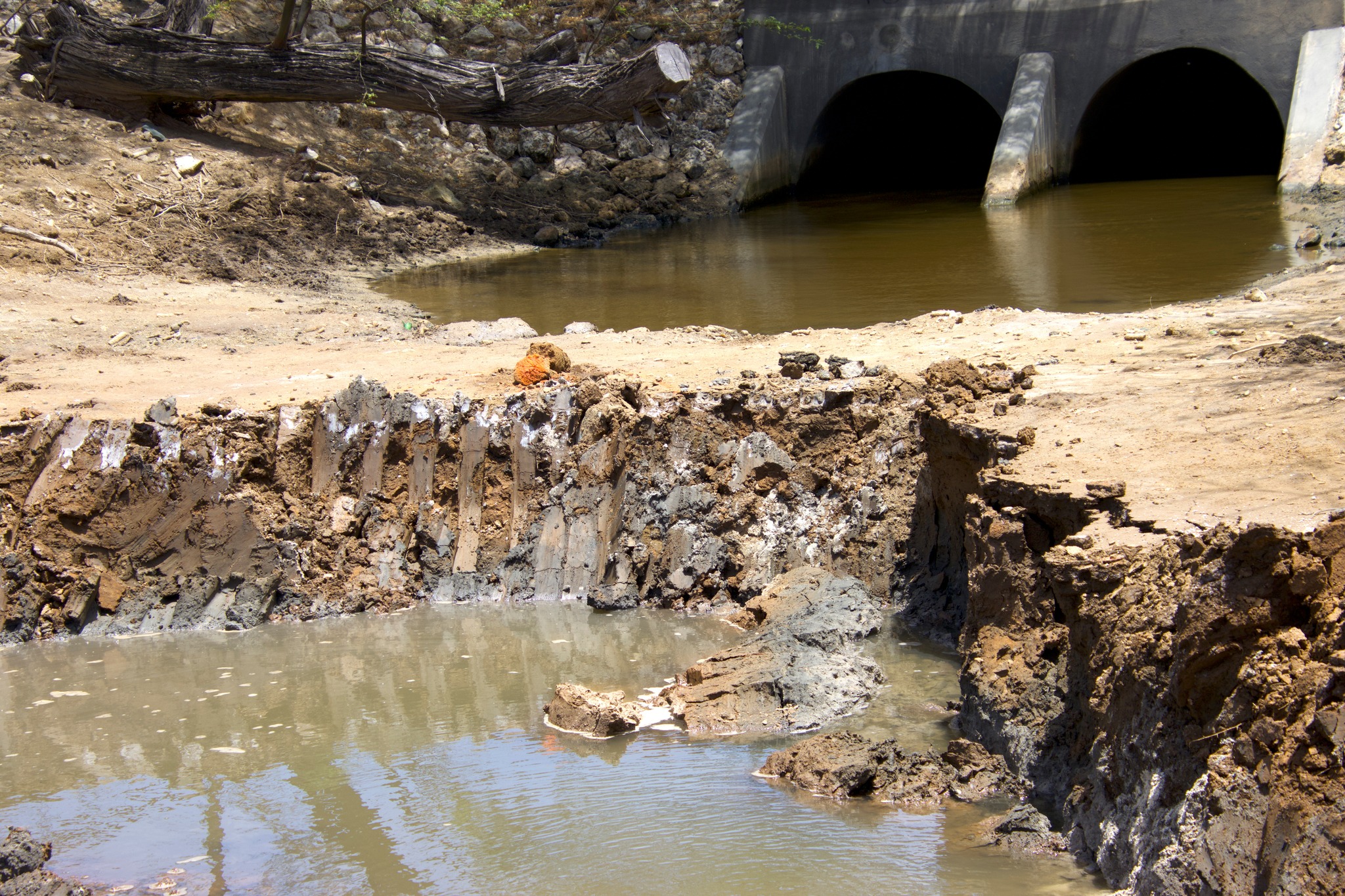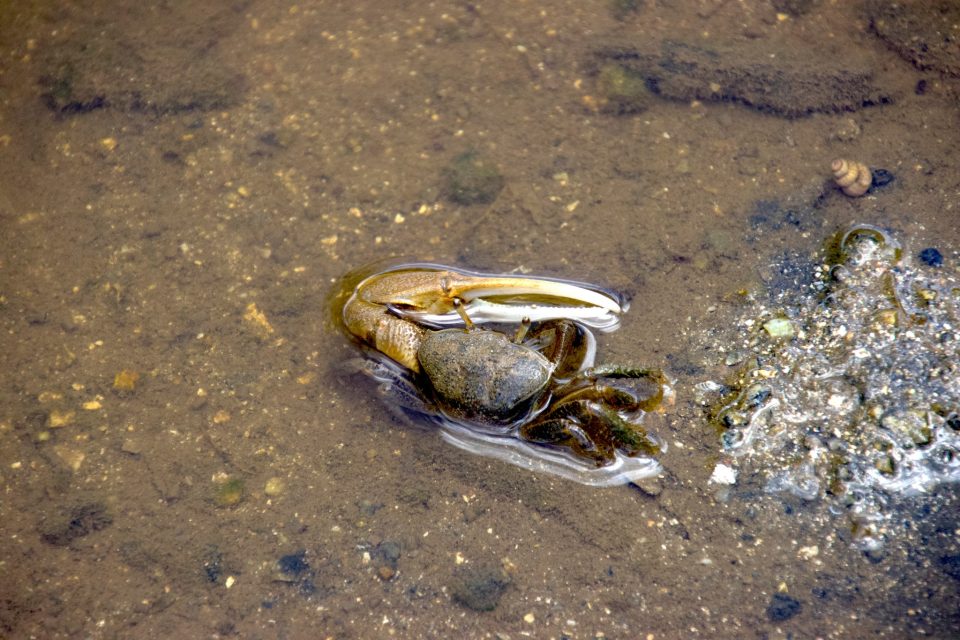The Aruba National Parks Foundation (FPNA) in collaboration with Wageningen University & Research, the ScubbleBubbles Foundation and the University of Aruba in March announced the start of the project called Turning the Tide, a project dedicated to restoring coral reefs and mangroves in Aruba for a period of 15 months.
Restoration work began at Rooi Lamoenchi where pits were dug for silt traps that would trap mud or sediments caused by soil erosion. Land erosion occurs when land is cleared and trees removed that serve a function of holding the land in place. The loose soil then enters the sediment system and flows into the mangroves each time it floods, causing a negative impact on the mangroves’ ecosystem.
By creating “silt traps” at the point where the redwood runs out and the mangrove area begins to erode, it prevents the mangrove ecosystem from being filled to capacity so that the mangrove can survive. In the coming days, restoration work will also be done on Rooi Taki and then on Rooi Bringamosa.
Reefs are one of the most productive and biologically diverse ecosystems on our planet, they are the first line of defense for communities living near the coast and they also catch sediment and filter water before it reaches the coast and coral reefs. Therefore, it is important that we continue to restore Aruba’s abundant ecosystem, which is of great value to future generations. Note that the area where the crab lives will not be cleared to ensure that they are protected while this work takes place.





